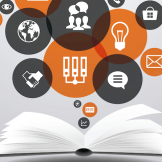“Bureaucracy” – Iron Cage to Social Network
I hate word “bureaucracy” because it degrades public sector workers at all levels. For many reasons, countless pejorative metaphors, theories, and political actions about public sector workers have decorated the iron cage. Public sector staff can weave webs supporting real collaboration, see contacts outside the hierarchy and rules; they seek out connections with people who… Read more »





